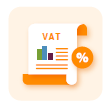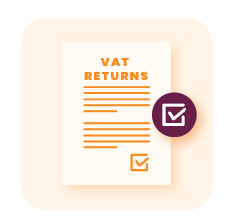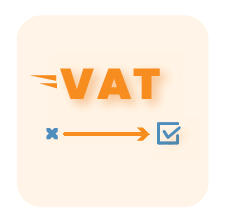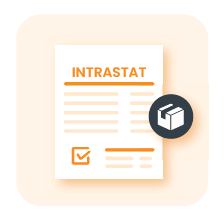Reverse Charge & “Call Off Stock” in Belgium
The “reverse charge” mechanism requires the receiver of goods or services to be responsible for paying the VAT. This mechanism is applicable to any supply of services falling under the B2B rule if the supplier is located outside of Belgium.
Call-off stock pertains to merchandise relocated by a vendor to a storage unit or warehouse. This facility is typically managed or owned by a particular customer who has the freedom to claim these items whenever needed.
Read more about reverse charge and “Call-off stock” in Belgium in our comprehensive guide.
Selling in Belgium?
Belgium – Consignment & “Call off stock”
Consignment Stock
Consignment stock refers to inventory that is shipped from a sender, or “consignor”, to a warehouse and later sold to an end customer. If the goods are moved from another EU Member State, the transaction is seen as an intra-Community transfer of the consignor’s own goods.
Under Belgian law, the consignor must register for VAT and then conduct a domestic supply to the consumer. In cases where the consignor is the importer, registration is required if the transaction is considered an import, that is, a transfer from outside the EU.
Call-off Stock
Call-off stock pertains to merchandise relocated by a vendor to a storage unit or warehouse. This facility is typically managed or owned by a particular customer who has the freedom to claim these items whenever needed.
The transaction involving call-off stock usually necessitates the vendor’s registration for Value Added Tax (VAT). Yet, suppliers with VAT registration within EU Member States can circumvent this requirement in the receiving Member State thanks to a standardized EU simplification process implemented from January 1, 2020, and onwards.
The “Quick Fixes” introduced by Article 17a of the EU VAT Directive include a scheme that allows suppliers of call-off stock registered in EU Member States to avoid registration in the destination Member State. This scheme has been transposed into Belgian law through Article 12ter of the Belgian VAT Code.
Article 12 applies when a seller sends goods to a warehouse in another EU Member State for subsequent supply to a buyer. The simplification rule treats this transfer to the warehouse as a non-taxable event. The taxable event happens when ownership of the goods is transferred to the consignee. It’s considered a zero-rated intra-Community supply of goods and acquisition by the buyer in the Member State of acquisition. This simplification avoids VAT registration for the vendor in the destination Member State.
Import VAT
Belgium imposes a value-added tax (VAT) on imported goods. This tax is collected at the point of importation. In general, VAT is payable on all services purchased from outside of Belgium, and the rate is the same as if the services were supplied within Belgium. The place of supply rules determines the applicable VAT rate, along with whether the reverse charge mechanism or supplier registration requirements apply.
Thus, when goods are imported into Belgium, the importer is required to pay import VAT and customs duty upon receipt of the goods. However, if the importer is a taxable person and imports goods regularly, they may be eligible for an “ET 14000 license” and declare the import VAT on their periodic VAT returns. Some imports are exempt from VAT, such as goods that are immediately followed by an intra-Community supply.
Starting from July 1, 2021, specific low-value goods that are imported can be taxed under the Import One Stop Shop (IOSS) scheme instead of being subjected to import VAT.
Last Updated: 20/11/2023
Disclaimer
The information provided by Global VAT Compliance B.V. on this webpage is intended for general informational purposes only. Global VAT Compliance B.V. is not responsible for the accuracy of the information on these pages, and cannot be held liable for claims or losses deriving from the use of this information. If you wish to receive VAT related information please contact our experts at support@gvc.tax








